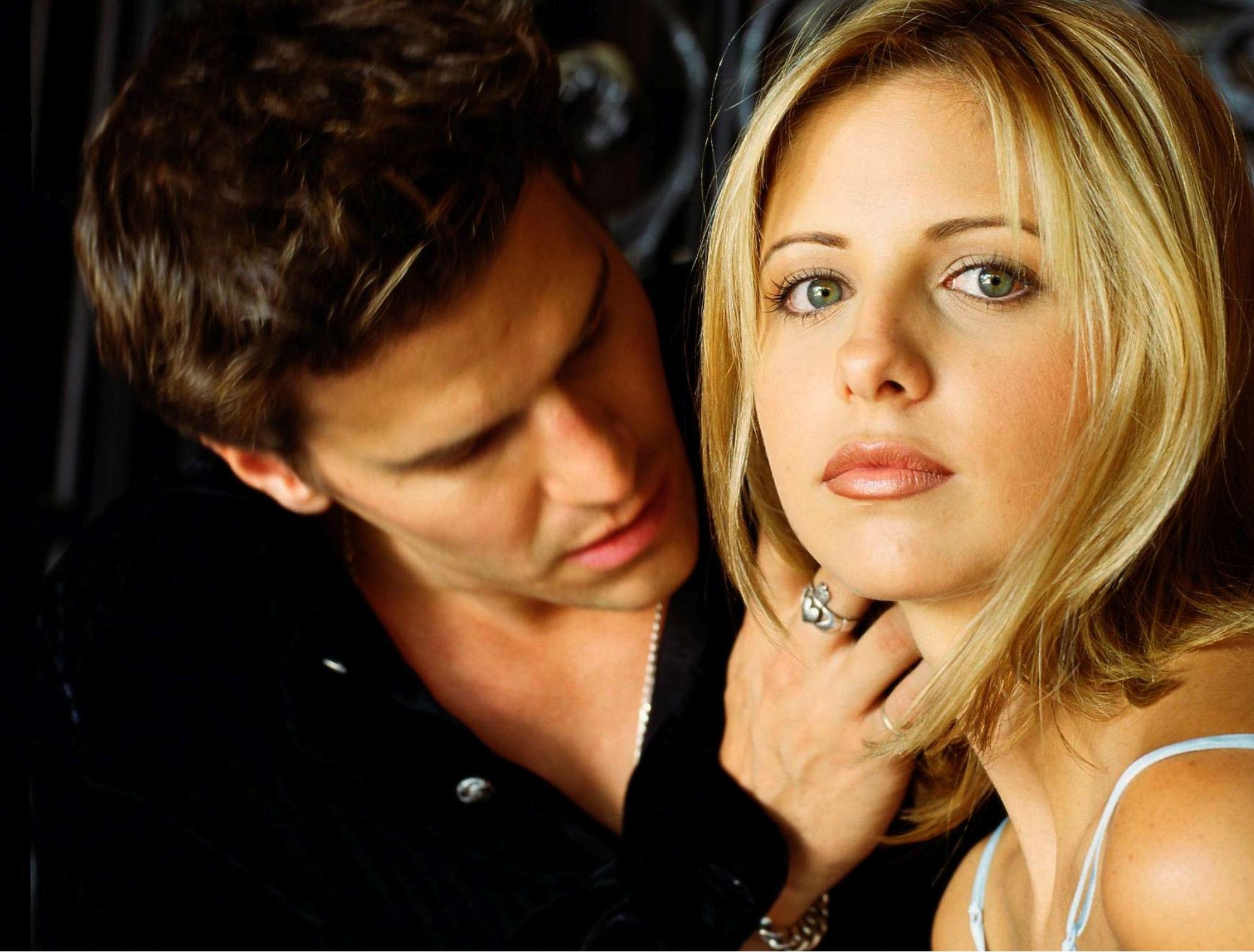Thank you Buffy the Vampire Slayer for teaching me how to be gay
I was hooked: there were hot men; a strong female lead; phallic objects that would penetrate the hearts of vampires; and deep sexual and emotional tensions between good and evil which asked you to reevaluate your preconceived notions of right and wrong

At nine years old I realised that I was gay; it was the heartbreaking moment when I acknowledged that I would be set for a lifetime on the outside.
I’d spent two years denying it to myself, deeply ashamed of my attraction to men, of my want to take up jazz dance, of my love for women’s clothes and makeup. I wished every day that I could just turn it off, and would pray to a God I didn't believe in so that he might use his powers to make be ‘normal’.
That same year I purchased my first VHS boxset in Woolworths, Morecambe. It was Buffy the Vampire Slayer, Season One, and it cost £8. Little did I know, but when I arrived home on that Tuesday, I pressed play on a show that would irrevocably change my life.
I was hooked: there were hot men; a strong female lead I would go on to spend my adolescence quoting, aspiring to, and dressing like; phallic objects that would penetrate the hearts of vampires and demons; and deep sexual and emotional tensions between good and evil, tensions which constantly asked you to reevaluate your preconceived notions of the line between right and wrong, power and weakness.
In the years that followed I spent all of my pocket money on Buffy boxsets. Joss Whedon had created a show which put the power to save the world into the hands of the outsiders: to the lesbian couple, the ex-Vengeance demon, two hot vampires with a soul, the popular cheerleader turned Chosen One, and Xander. Dominant and oppressive forces in real life were represented by each episode’s enemy, an overarching ‘Big Bad’, and the Scooby Gang, who time and time again defeated the oppressor by fighting it.
It’s the first TV show I can remember that foregrounded the efforts of people who collectively worked tirelessly for what they believe in, for what they knew was right and saw them actually win. And never would you catch a friend betraying a friend, or somebody sacrificing their morals for the offer of an easier, more successful path.
This group of late-teens were an onscreen representation of activists who organised, communicated, drew on each other’s strengths and supported each other’s weaknesses, in order to solve potentially world-ending challenges.
As a struggling, nine year old gender-confused gay person I was being energised by the message that through love, support, and communication you could overcome, and stay safe from, the imminent dangers of the outside world, especially if you were lucky enough to find a Scooby gang of your own.
Before coming out I resonated with Buffy because a huge facet of her character—being the Slayer—was about hiding, and keeping a secret that nobody could know. I felt like we reciprocally understood each other by way of keeping this thing that makes us both so powerful and so special hidden.
Later, I would come to realise the significance of being gay, or queer as I now define and being a fighter were inherently linked. Once I came out, I found that what I had learned from Buffy and friends was the importance of speaking out and standing up against the Big Bads who would try to destroy you. I learned that from your perceived societal weakness you could draw the most strength.
I always knew I liked boys, I eventually knew how to name it as ‘gay’. But, in all earnest, it was Buffy the Vampire Slayer that taught me how to be a gay person: how to love my difference, how to love other people’s, and how to take this difference and use it to be powerful, to be political, to be outspoken, trying your hardest to fight for what’s right.
Just before she dies at the end of Season Five, Buffy relays a message to her sister: “The hardest thing in this world is to live in it. Be brave, live, for me!” That’s exactly what I did, and that’s exactly what so many LGBTQIA+ people do every day.
Join our commenting forum
Join thought-provoking conversations, follow other Independent readers and see their replies
Comments
Bookmark popover
Removed from bookmarks